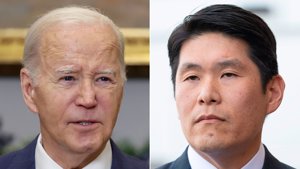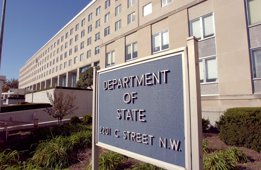
Judge Weighs Limits on ICE Immigration Arrests in California
Federal judge weighs emergency limits on ICE immigration arrests in California amid constitutional rights dispute.
Federal Judge Hears Arguments on Immigration Enforcement
A federal judge in Los Angeles is considering whether to impose strict new limits on how Immigration and Customs Enforcement (ICE) conducts arrests in California. The hearing, held Thursday before Judge Maame Ewusi-Mensah Frimpong, comes as President Donald Trump’s administration continues an aggressive push for deportations across the state.
The case originated in June as a petition by three detainees but has since grown into a far-reaching lawsuit involving multiple immigrant rights organizations and Democratic-led local governments. The cities of Los Angeles, Santa Monica, Culver City, and West Hollywood have all joined the legal effort, and several states have filed briefs supporting the plaintiffs’ claims.
The plaintiffs allege that ICE officers have engaged in unconstitutional practices by conducting “indiscriminate” arrests, frequently targeting people with brown skin at locations such as Home Depot, car washes, and farms. Attorneys argue that many arrests were made without reasonable suspicion, in violation of the Fourth Amendment, and that U.S. citizens have been mistakenly detained as a result. They claim that the Trump administration’s reported quota of 3,000 arrests per day has led to shortcuts and pressure on officers to ignore legal safeguards.
Constitutional Concerns and Government Response
Lawyers for the cities and rights groups also argue that detainees held at a short-term facility in downtown Los Angeles have been denied adequate access to legal counsel, raising Fifth Amendment due process concerns. The plaintiffs have asked the court to expand visitor access and oversight at the facility, which was the site of protests and unrest in early June, resulting in a temporary evacuation by authorities.
Department of Justice attorneys representing the Trump administration deny any wrongdoing and assert that ICE arrests have followed established legal procedures. In court filings, they maintain that immigration officers are permitted to consider factors such as occupation and location when making arrests, and that the requests by plaintiffs to enjoin such practices contradict existing law.
During Thursday’s hearing, Judge Frimpong indicated she was inclined to grant a temporary restraining order by Friday, but also expressed caution, stating, “I think it’s important for the court not to burden otherwise lawful law enforcement activities.”
The outcome of the case could have sweeping effects on immigration enforcement practices in California and may set important precedents for how constitutional protections are applied in the context of federal immigration operations. As legal arguments continue, both sides await a decision that will shape the immediate future of enforcement and civil rights in the nation’s most populous state.






